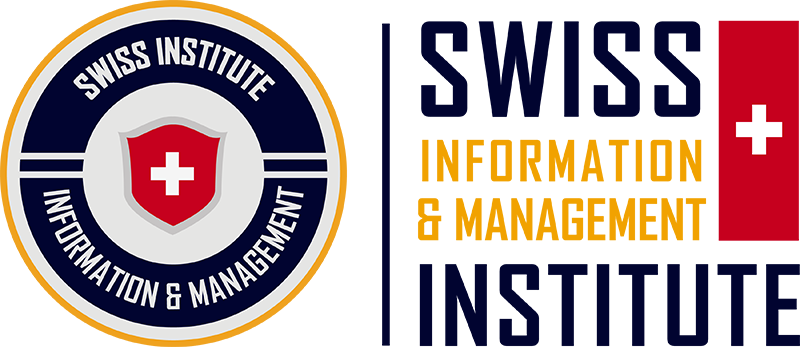Switzerland’s Public Transport System And Other Information For International Students

When studying in Switzerland, international students will notice the diversity and safety of public transport in Switzerland. However, whatever you pay for, the fare here will not be cheap.
Switzerland’s approach to vehicle use has contributed to the country’s high ranking among the top countries in the world for quality of life. With such advanced public transportation, it is easy to see why the Swiss are so punctual.
Here are some of the most frequently used transport systems in Switzerland.
Train
The fastest and most convenient way to get around Switzerland is by train. If you add up the railway lines running across the country, they are more than 5,200 km long.
The largest state railway company in Switzerland is the Swiss Federal Railways (SFR). It is also known as SBB in German, CFF in French, and FFS in Italian. International students should also note this down because in Switzerland there are 4 main languages used, read more at Studying in Switzerland and what you need to know article!
SBB is not the only train company; In addition to it, there are more than twenty private and partly privately owned train companies that complete the dense Swiss rail network.
There are two types of train tickets in Switzerland: first-class and second-class tickets. It should be noted that you cannot buy tickets on the train. Therefore, you should be careful when buying them at the SBB ticket machines at the platform before boarding the train.
The railway network here is highly developed. To meet the growing needs of the people, SBB is constantly upgrading its vehicles and routes. Its rail network now covers rural areas between cities. The vehicle will operate every half hour or one hour. There are different types of trains in Switzerland, from long-distance trains to regional trains.
Bus
In Switzerland, buses are not used as a daily vehicle like in Vietnam or other Asia countries. Swiss people often use buses to travel to places they cannot reach by train. Although buses are not used much, the bus system in Switzerland works very well. Most vehicles have 2-way AC and wifi.
Communication is also not an issue because the driver here can speak at least two languages.
Bus fare is not uniform because it depends on the company providing the service. Some companies will offer discounts for groups of guests such as students, the elderly, children, or pets such as dogs and cats (that’s right, you read that right). If you don’t have a card, you can still buy it from ticket machines at bus or train stations.
In most cases, you will have to purchase a ticket before boarding. However, some buses in the suburbs are far from the ticket office or do not have ticket machines, in such cases, you can buy from the driver or the bus conductor.
In some cases, the bus ticket will be cheaper than the train, but taking the bus will be longer to get to the destination than the train.
Usually, small luggage will be free to carry on the bus. However, if the luggage is too large and you carry more than 2, you should check with the service company about the price and related policies.
Tram
Trams are not a widely used means of transport in Switzerland. However, in major cities such as Zurich, Geneva, and Basel, tram lines are still in operation. You can also come across this public transport when going to cities like Melbourne, Berlin, Moscow, Milan, etc.
The tram lines are dense to meet the travel needs of the Swiss people. Although trams are not as widely used as trains and buses, they are still one of the factors that make up the diversity of the public transport system here.
Taxi
Of course, a taxi is an indispensable means of transportation anywhere. However, this service is often quite expensive and difficult to navigate especially in busy road areas. Therefore, if you are planning to take a taxi in Switzerland, you should take a taxi in public taxicabs.
In Switzerland, the cities with the highest taxi fares are Zurich and Zug. Despite being expensive, this is still an optimal choice, especially when you want to get to a certain location in an emergency without other means of transport. In Switzerland, when taking a taxi, you do not necessarily have to tip the driver.
Others
In addition, public transport in Switzerland also includes cable cars, boats, helicopters. An interesting thing in Switzerland is that you can rent a helicopter to skydiving, or simply enjoy the view, which of course is not cheap. Because the scope of this article is for international students, the luxury vehicle section will be covered in another article.
Travel pass for public transport in Switzerland
In addition to being known as a country with a public transport network of about 29,000km, Switzerland is also famous for a significant number of tourist tickets for foreign visitors. Some of the tickets, used by both locals and tourists, include:
Half-fare pass
Half-fare tickets allow you to travel around Switzerland for half-price on the entire Swiss public transport network such as boats, buses and trams. With this ticket in hand, you can enjoy discounts on urban transport as well as other attractive services.
The annual cost for a half-price tourist ticket is CHF 185. When purchasing this type of ticket, you will be granted an indefinite contract, which will automatically be renewed if it expires. Alternatively, you can take advantage of the loyalty rate of CHF 165. Those aged 16 to 25 only pay 120 CHF for a half-price tourist card for the first year, after renewal they get a discount and a payment of CHF 100.
In the event that you wish to cancel your travel ticket, you will receive a bill two months before the automatic annual renewal. This will give you enough time to cancel your half-price travel ticket by calling the SBB Contact Center on 0848 44 66 88 (0.08 CHF/min) or at the point of sale.
General Abonnement (GA) Ticket
The GA card is commonly known as AG (French for abonnement général) allowing holders one year of unlimited travel on public transport. If you are a tourist visiting Switzerland for a short time, it is best to use a one-day pass.
Swiss Pass
The Swiss Pass is a plastic card with two electronic RFID chips. These chips do not store any consumer data but are used to store your personal Swiss Pass number to check your name and travel ticket. This card replaces the GA card or half-price card and is valid for 3 to 15 consecutive days.
Depending on the option and duration that you choose, its cost ranges from 240 to 890 CHF. You can travel in first-class or second class. The Swiss Pass can be purchased at any station in Switzerland. The benefits of the Swiss Pass include:
- Free public transport.
- Travel from one city to another without worrying about any language barriers.
- Free admission to over 500 museums in Switzerland.
- 50% off for cable car and mountain bike.
This pass will make travelling in Switzerland pretty easy if you’re planning to travel for several days in a row and you don’t want to worry about buying tickets. After receiving your Swiss Pass, all you have to do is give it to the bus conductor.
Whether you’re going by train, bus, tram or taxi, Switzerland is one of the most amazing places you can visit or study. If you have planned a trip to a country known for its delicious chocolate, beautiful natural scenery and high quality of life, you will find that Switzerland has many must-see places and the excellent public transport system here will help you get to these places.
Note: The fares and fees provided are for reference only and are subject to change from time to time or regional policies without prior notice.
Source: The Swiss Institute Of Management And Innovation
